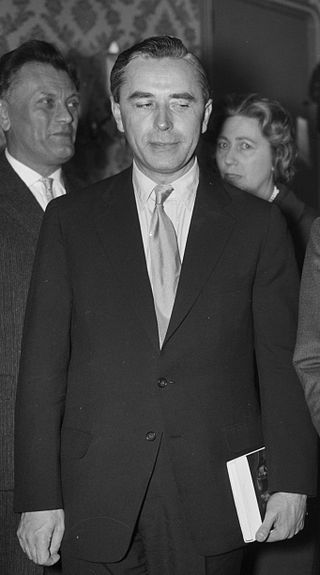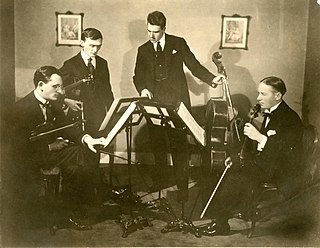The Gramophone Classical Music Awards, launched in 1977, are one of the most significant honours bestowed on recordings in the classical record industry. They are often viewed as equivalent to or surpassing the American Grammy award, and referred to as the Oscars for classical music. They are widely regarded as the most influential and prestigious classical music awards in the world. According to Matthew Owen, national sales manager for Harmonia Mundi USA, "ultimately it is the classical award, especially worldwide."
Pamela Frank is an American violinist, with an active international career across a varied range of performing activity. Her musicianship was recognized in 1999 with the Avery Fisher Prize, one of the highest honors given to American instrumentalists. In addition to her career as a performer, Frank holds the Herbert R. and Evelyn Axelrod Chair in Violin Studies at the Curtis Institute of Music, where she has taught since 1996, and is also an Adjunct Professor of Violin at the University of Southern California's Thornton School of Music since 2018.
Willibald Karl Boskovsky was an Austrian violinist and conductor, best known as the long-standing conductor of the Vienna New Year's Concert from 1955 to 1979.
The Melos Quartet was a much-recorded, Stuttgart-based string quartet active from 1965 until 2005, when its first violin died. It also went by the name Melos Quartett Stuttgart, partly to distinguish itself from the equally prominent chamber group the Melos Ensemble of London.

Rudolf Firkušný was a Moravian-born, Moravian-American classical pianist.
Lillian Fuchs was an American violist, teacher and composer. She is considered to be among the finest instrumentalists of her time. She came from a musical family, and her brothers, Joseph Fuchs, a violinist, and Harry Fuchs, a cellist, performed with her on various recordings.

The Fine Arts Quartet is a chamber music ensemble founded in Chicago, United States in 1946 by Leonard Sorkin and George Sopkin. The Quartet has recorded over 200 works and has toured internationally for 77 years, making it one of the longest enduring major string quartets. In its history, the Quartet has had two leaders: Leonard Sorkin, from 1946 to 1981, and Ralph Evans, from 1982 to the present. Its current members are violinists Ralph Evans and Efim Boico, violist Gil Sharon, and cellist Niklas Schmidt.

Josef Suk was a legendary Czech violinist, violist, chamber musician and conductor. In his home country he carried the title of National Artist.
Friedrich Wührer was an Austrian-German pianist and piano pedagogue. He was a close associate and advocate of composer Franz Schmidt, whose music he edited and, in the case of the works for left hand alone, revised for performance with two hands; he was also a champion of the Second Viennese School and other composers of the early 20th century. His recorded legacy, however, centers on German romantic literature, particularly the music of Franz Schubert.
Andreas Haefliger is a German-born Swiss pianist.

The London String Quartet was a string quartet founded in London in 1908 which remained one of the leading English chamber groups into the 1930s, and made several well-known recordings.
The Léner String Quartet, sometimes written the Lehner String Quartet, was a string quartet of Hungarian origin, founded in Budapest in 1918, which for most of its pre-war career operated in or from London. They appeared at the Royal Albert Hall, London on three occasions between 1922 and 1926. They also performed in New York, Amsterdam, and elsewhere in Europe. The Léner made the first complete recorded cycle of Beethoven quartets.
The Spencer Dyke Quartet was a string quartet active in England through the 1920s. It was formed in 1918 and its personnel remained unchanged until August 1927 when Bernard Shore became the violist and Tate Gilder the second violin. It is best remembered now for a series of pioneering chamber music recordings made for the National Gramophonic Society. At the time of the recordings, the Quartet members were Edwin Spencer Dyke, Edwin Quaife, Ernest Tomlinson (viola) and Bertie Patterson Parker cello. Bernard Shore played viola in the last two recordings only.
Till Fellner is an Austrian pianist.
Jean Pougnet was a Mauritian-born concert violinist and orchestra leader, of British nationality, who was highly regarded in both the lighter and more serious classical repertoire during the first half of the twentieth century. He was leader of the London Philharmonic Orchestra from 1942 to 1945.
Cecil Aronowitz was a British viola player, a founding member of the Melos Ensemble, a leading chamber musician and an influential teacher at the Royal College of Music and the Royal Northern College of Music.
Leonard Hokanson was an American pianist who achieved prominence in Europe as a soloist and chamber musician.
Ivor McMahon (1924–1972) was an English violinist. He played with notable orchestras including the Philharmonia Orchestra and the English Chamber Orchestra and is best known for playing second violin in the Melos Ensemble.
Carlos Antonio Pini OBE was a cellist, known as a soloist, orchestral section leader and chamber musician. He was principal cellist of five major British orchestras between 1932 and 1976, and a teacher at the Royal College of Music and the Guildhall School of Music and Drama.
Bernard Zaslav was an American viola soloist and chamber musician with an extensive recording and performance career. A founding member of The Composers Quartet in 1965, he went on to play with the Fine Arts Quartet, Vermeer Quartet, and the Stanford String Quartet. He has also performed and recorded as the Zaslav Duo with his wife, pianist Naomi Zaslav.



